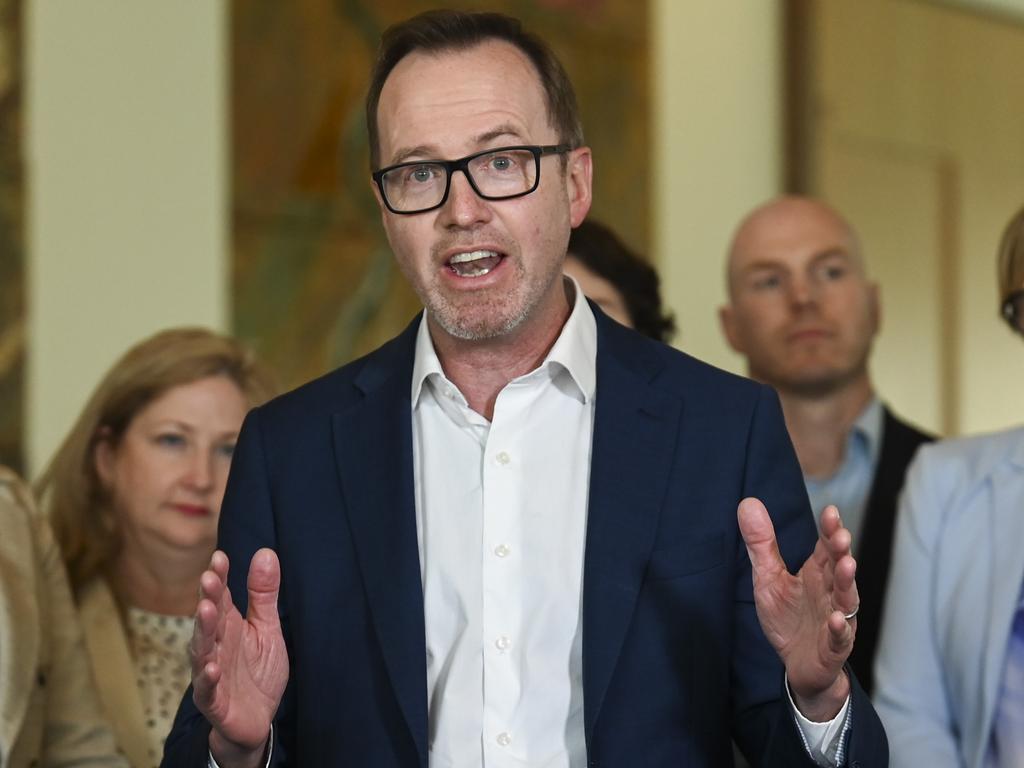I want NACC to be fearless but fair: Paul Brereton

The Commission’s jurisdiction is concerned with corrupt conduct that involves commonwealth public officials. Much of the public debate has been concerned with parliamentarians, but the commission will also be concerned with corrupt conduct involving public servants, individuals engaged in assisting commonwealth agencies, consultants, and contracted service providers under commonwealth contracts.
Commonwealth public officials wield great power that can massively impact, for better or worse, the lives of individuals and communities. They determine visa applications, distribute grants, acquire land for commonwealth purposes, procure equipment and services, make decisions about pensions and other benefits, and deliver services on behalf of government.
Integrity in governance is fundamental to ensuring that decisions such as these are made in the public interest, unaffected by private interest; and that resources are applied for the benefit of the people for whom they are intended, and not eroded or diverted. Integrity involves making decisions and giving advice honestly and impartially, on the evidence and the merits, in the public interest and without regard to personal interest; accepting responsibility for it, including for mistakes; and reporting honestly.
Corruption is essentially about the misuse of public power, position, or property, usually for private purposes. Corruption diverts government resources, which means there is less available to provide the services and benefits those resources are intended to deliver. Corruption erodes public trust in government and the institutions of state, and undermines democracy. This is equally so, whether it is done by those who are popular or those who are unpopular, those who are in government or those in opposition, by public servants or by consultants.
A primary function of the Commission is the investigation of conduct that could involve serious and systemic corruption. It is through detection, investigation and reporting that corrupt conduct is exposed, and through the risk of such exposure that more corrupt conduct is deterred.
Anyone can refer a question of whether there has been corrupt conduct involving a public official to us – preferably by our online web form, or by telephone. We will listen to you. In my experience, most apparently querulous complaints have their seed in a legitimate grievance that was not properly addressed at the outset. We will assess every matter that is referred to us, to see whether it is within jurisdiction (that is, that a commonwealth public official is involved), whether the conduct alleged could amount to corrupt conduct, and whether it should be investigated.
That does not mean that we will investigate every matter that is referred to us. It is important to appreciate that mere mistakes and even negligent maladministration are not in themselves corruption. We cannot resolve disputes, nor review decisions. The experience of other Corruption Commissions is that only a very small proportion of matters referred ultimately reach the stage of full investigation. In deciding whether and if so how to deal with a matter, we will consider the seriousness and scale of the conduct, whether there is a realistic prospect of finding corrupt conduct, whether there have been other investigations of it, and whether it is preferable that another agency investigate it. Above all, we will be concerned with whether and to what extent a corruption investigation by the Commission is likely to add value in the public interest.
Our focus will be on issues of corruption that are potentially serious or systemic. “Serious” requires something that is significant; it involves something more than “negligible” or “trivial”, but it does not have to be “severe” or “grave”. “Systemic” means something that is more than an isolated case; it involves a pattern of behaviour, or something that affects or is embedded in a system.
We will more likely be interested in investigating matters that have current practical relevance, rather than those that are historic.
Not only can anyone refer corruption issues to the Commission, we can also investigate matters of our own motion. The Commission is obviously aware of a number of matters which have been mentioned in the media and elsewhere as potential subjects for investigation. We will assess all the matters of which we are aware, to decide whether they should be investigated. Again, relevant considerations include above all whether a corruption investigation by the Commission would add value in the public interest, especially in the light of any other inquiries or investigations that are happening, and whether there is any real prospect of a finding of corrupt conduct. Again, we may decide to investigate some of these matters in order to clear the air, even if there does not appear to be a significant prospect of a finding of corrupt conduct.
We conduct corruption investigations, not criminal investigations. There are other agencies for criminal investigations. If as a result of a corruption investigation we are satisfied there has been corrupt conduct, we will issue a report with a finding to that effect. Such a finding is a serious one, not lightly to be made. But it is important to recognise that conduct can be corrupt without being criminal, and that we do not make findings of criminal guilt, to which different rules of evidence and proof apply. If there is evidence of criminal conduct, we may refer it to a prosecuting agency. But it is precisely in the area where it may not be possible to establish criminal conduct to the high criminal standard of proof that the Commission’s work can be most important in enhancing integrity by investigating and exposing corrupt conduct, even where it cannot be prosecuted in a criminal court.
It is important to appreciate that the fact that we decide to commence an investigation does not imply that there is necessarily corrupt conduct. It may sometimes be in the public interest that we open an investigation to “clear the air”, and I will use the power to make public statements about corruption issues to do so. Should it be sought to “weaponise” the Commission through inappropriate or unfounded referrals, I will not hesitate to use the power to make public statements, if necessary, to avoid unfair damage to reputations and to say that the referral was inappropriate.
The Commission recognises the importance of exposing corrupt conduct to the public, and of making the public aware of corrupt conduct. We are also conscious that our work should be subject to public scrutiny. And so we will operate with as much transparency as we properly can. However, there are necessarily constraints on what can permissibly be done openly. Generally, it will not be appropriate for the Commission to comment on a corruption issue being assessed for investigation, or on the progress of an investigation; to do so could compromise the integrity of the investigation, and risk unfair harm to persons involved. We will conduct public hearings in accordance with the legislation, when the circumstances and the public interest justify an exception to the general rule that they be held in private.
On the one hand, it is not in the public interest to have the reputations of people damaged by allegations which might turn out to be baseless; on the other, there is public interest in being informed of evidence of corrupt conduct by or affecting public officials, government departments, and politicians; and in public scrutiny of the Commission’s activities. The main considerations will be the significance of the alleged corrupt conduct, the desirability of exposing evidence of it, and the appropriateness of public scrutiny of the Commission’s activities; weighed against any unfair prejudice to a person’s reputation, privacy, safety, or wellbeing that might be caused if the hearing were held in public.
We aim to complete 90 per cent of investigations within 12 months; we expect there will be some more complex investigations in which it will take longer to elicit and establish the truth.
The prevention of corruption is critical to ensuring that public power is exercised honestly, impartially and in the public interest, and that programs intended to deliver benefits to the people do so, without their potential benefits being eroded by the improper diversion of resources along the way. The greater the integrity in the commonwealth public sector, the greater the trust of the people in our democracy.
My aspiration is that this Commission become and be a respected part of the machinery of our democracy. I want the Commission to have the reputation of being fearless but fair, independent, and impartial. While the legislation gives us great powers, with that comes great responsibility. The legislation has in-built guarantees of procedural fairness, and other oversight mechanisms, including the Inspector and the Parliamentary Joint Committee, to ensure that we use those powers responsibly and fairly. Our independence supports us to be fearless. The Commission is impartial and independent from government. I have been appointed for a fixed term of five years, without any possibility of reappointment; I cannot be dismissed, except for proved misbehaviour or incompetence, and I cannot be reappointed. I have nothing to gain from favouring, and nothing to lose from offending, any government of the day, present or future.
Justice Paul Brereton is the inaugural commissioner of the National Anti-Corruption Commission. This is an extract of an address he delivered at the agency’s opening in Canberra on Monday.






The mission of the National Anti-Corruption Commission is to enhance integrity in the commonwealth public sector, by deterring, detecting and preventing corrupt conduct involving commonwealth public officials, through education, monitoring, investigation, reporting and referral.